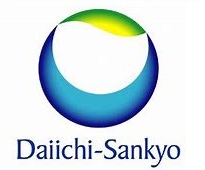A cancer advisory committee of the US Food and Drug Administration (FDA) has voted against Daiichi Sankyo’s quizartinib, which is indicated to treat adults with relapsed / refractory FLT3-internal tandem duplication (ITD) acute myeloid leukaemia (AML).

The panel voted 8-3 against the drug when asked whether its benefits outlined in the Phase III QuANTUM-R clinical trial outweighed the safety risks.
The US regulator will now consider the recommendation while reviewing Daiichi Sankyo’s application.
Quizartinib is an investigational, oral selective type II FLT3 inhibitor. The randomised QuANTUM-R trial demonstrated a prolonged overall survival (OS) in patients that used the drug when compared to chemotherapy alone.
Daiichi Sankyo oncology research and development (R&D) executive vice-president and global head Antoine Yver said: “While we are disappointed by the outcome of today’s ODAC vote, we will work closely with the FDA as it completes the review of our submission.
“Patients with relapsed / refractory FLT3-ITD AML are facing a very aggressive disease with poor prognosis, and we continue to believe that quizartinib could offer an important additional treatment option that specifically targets FLT3-ITD, a driver mutation in AML.”
The FDA’s advisory committee also voted 12-3 in favour of the company’s pexidartinib drug, which is intended for adults with symptomatic tenosynovial giant cell tumours (TGCT).
Pexidartinib is an investigational, oral small molecule inhibitor of colony stimulating factor-1 receptor (CSF1R), c-kit and FLT3-ITD. Its regulatory submission included results from the Phase III ENLIVEN trial, which met the primary endpoint of tumour response rate.
Yver noted: “We believe that pexidartinib has the potential to help address this need by offering carefully selected TGCT patients an important treatment advancement, and we look forward to working with the FDA as it completes its review of our application.”

